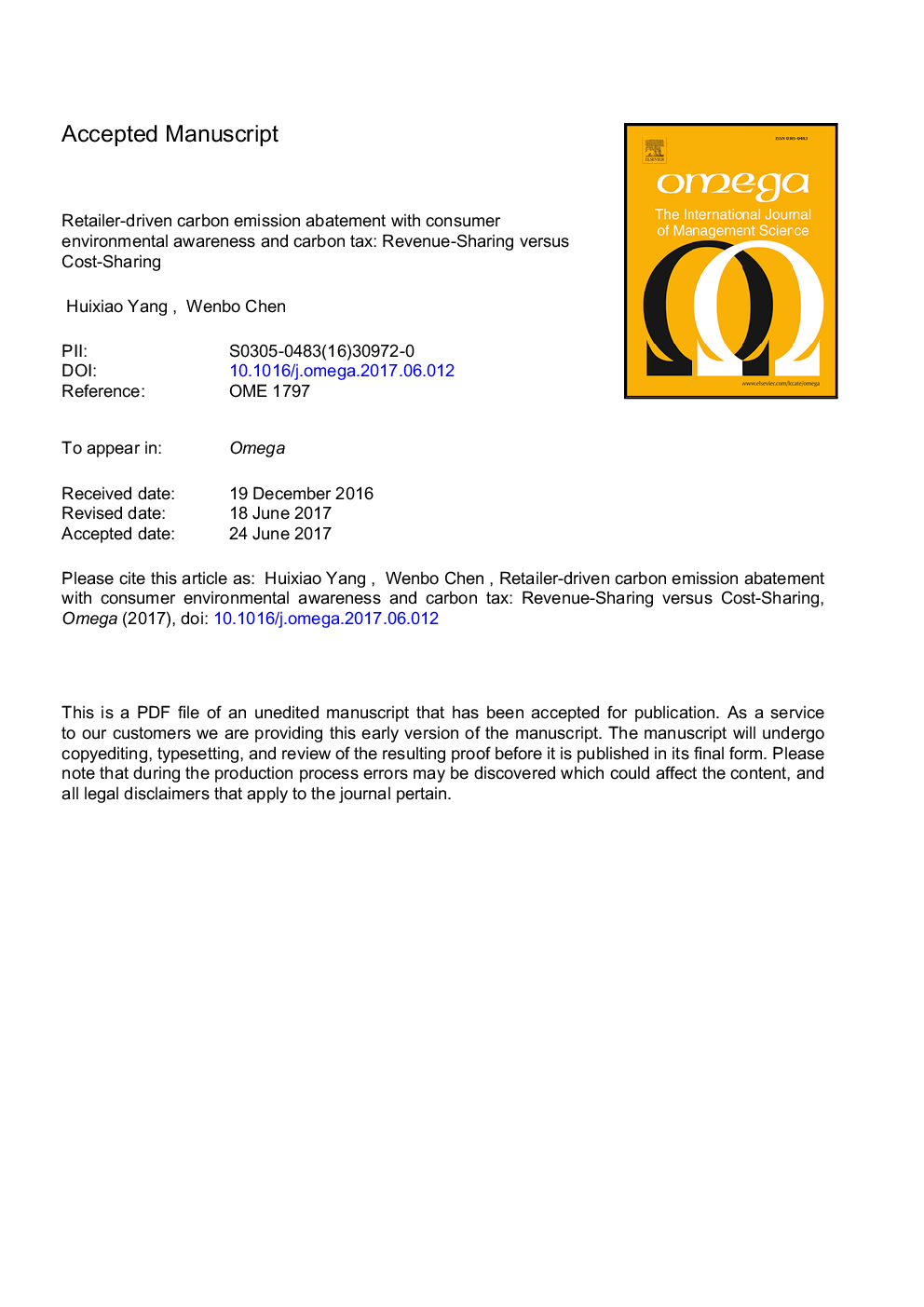| کد مقاله | کد نشریه | سال انتشار | مقاله انگلیسی | نسخه تمام متن |
|---|---|---|---|---|
| 7436642 | 1483651 | 2018 | 26 صفحه PDF | دانلود رایگان |
عنوان انگلیسی مقاله ISI
Retailer-driven carbon emission abatement with consumer environmental awareness and carbon tax: Revenue-sharing versus Cost-sharing
ترجمه فارسی عنوان
کاهش مصرف کربن توسط خرده فروشان با آگاهی مصرف کننده محیط زیست و مالیات بر کربن: به اشتراک گذاری درآمد و به اشتراک گذاری هزینه
دانلود مقاله + سفارش ترجمه
دانلود مقاله ISI انگلیسی
رایگان برای ایرانیان
کلمات کلیدی
مدیریت زنجیره تامین، خرده فروشی رانده شده، کاهش انتشار کربن، آگاهی محیط زیست مصرف کننده، مالیات کربن، به اشتراک گذاری درآمد، هزینه اشتراک
موضوعات مرتبط
علوم انسانی و اجتماعی
مدیریت، کسب و کار و حسابداری
استراتژی و مدیریت استراتژیک
چکیده انگلیسی
We investigate the impact of Revenue-Sharing and Cost-Sharing offered by a retailer on a manufacturer's carbon emission abatement efforts and the two firms' profitability in a linear demand setting when consumer environmental awareness and carbon tax arise. We consider a supply chain system with a manufacturer (she) and a retailer (he). To spur the manufacturer's incentive for abatement, the retailer can move first to offer some incentive schemes to her, e.g., sharing the revenue solely, sharing the investment cost solely or sharing both or neither of them with her, which are referred to as “Revenue-Sharing scheme” (RS), “Cost-Sharing scheme” (CS), “Both scheme” (B), and “Neither scheme” (N), respectively. Under mild assumptions, our analytical results show that, under all these four schemes, the manufacturer would invest in emission abatement as long as consumer environmental awareness or carbon tax exists, and both firms' incentives for abatement are perfectly aligned. Surprisingly, B results in the same equilibrium outcomes as RS; thus, CS becomes dispensable when both RS and CS are available simultaneously. Moreover, both RS and CS can improve system efficiency and manufacturer's incentive for abatement, and RS improves them over CS, but fails to coordinate them. Further, the two firms' preferences over the four schemes are perfectly consistent: Both firms prefer RS to CS, prefer CS to N, and are indifferent between RS and B. Finally, to increase the manufacturer's incentive for abatement, the carbon tax level charged by the government should be the highest under RS, moderate under CS, the lowest under N, and identical under RS, B and the integrated system.
ناشر
Database: Elsevier - ScienceDirect (ساینس دایرکت)
Journal: Omega - Volume 78, July 2018, Pages 179-191
Journal: Omega - Volume 78, July 2018, Pages 179-191
نویسندگان
Yang Huixiao, Chen Wenbo,
